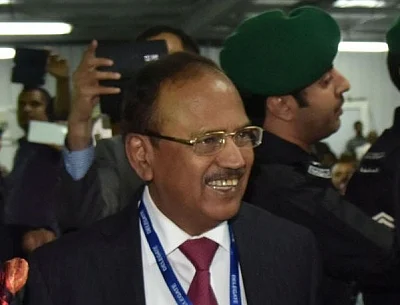By Ayaskant Das
New Delhi, Aug 2 (IANS) The post of a Chief of Defence Staff (CDS), as recommended in the Kargil Review Committee report, as a single-point advisor to the political establishment on military issues is yet to become a reality. The CDS, with a tri-service joint planning staff headquarter, had been mooted to manage and improve communication between the three military services on the one hand and the government on the other.
Experts are of the opinion that all three armed forces in India push their own management in communicating directly -- and separately -- with the Defence Minister or the Prime Minister of the country without any central point to co-ordinate among them.
It is a matter of general belief that the need for a CDS has been done away with after the inception of the post of a National Security Adviser (NSA) in the year 1998. The NSA works at the discretion of the Prime Minister of the country whom it advises on matters of both external and internal threats.
There is another school of thought that believes that the post of a CDS has not been created because those in positions of power do not want their own powers to be diluted. This school also believes that the CDS is feared by all ruling establishments that can grow into another "power centre" and has not been created yet due to political resistance.
Retired Lieutenant General Harcharanjit Singh Panag, former GoC-in-C of the Indian Army's Central and Northern commands, told IANS such fears of the CDS becoming an all powerful post are unfounded.
"In India the armed forces are firmly under government control. The government can remove the naval chief at its will or allow supercession in promotion. On the other hand, the National Security Adviser has become all powerful and acts like the de facto chief of defence staff. He also heads the Defence Planning Committee," said Panag.
The Defence Planning Committee (DPC) was created by the Narendra Modi-led BJP government at the Centre in April 2018 with objectives including implementation of military and security strategy in the country, drafting of capability development plans, to accelerate procurement and acquisition of defence equipment and to boost the defence manufacturing system in the country.
The DPC, which was placed under the chairmanship of National Security Advisor Ajit Doval, also had all three service chiefs among its members. Therefore, the chairperson of DPC was practically seen to have taken over the position of the proposed post of the Chief of Defence Staff.
According to another army veteran, retired Lieutenant General Deependra Singh Hooda, the requirement of undiluted military advice for the political establishment, which is a crucial need for any country, cannot be fulfilled by the NSA in India. Since its inception, the post of NSA in India has been occupied only by those belonging to the Indian Foreign Service (IFS) or the Indian Police Service (IPS).
"The CDS remains a need for the military establishment in India. The NSA doesn't have the military experience or expertise to advise the political establishment on external security matters. It is naive to expect a Defence Secretary, who doesn't enjoy a fixed tenure in the Ministry, to advise the political establishment on military matters. On the other hand, one already has over 40 years of military experience by the time one becomes a chief of any of the three services," Hooda told IANS.
The Joint Chief of Staff in the US is by law mandated as the principal adviser to the President of the country on military issues. In India, the first and only tri-service command is based in the Union Territory of Andaman and Nicobar Islands. This command was formed by the Atal Bihari Vajpayee government in the year 2001 to safeguard India's strategic interests in Southeast Asia. However, the command has been marred by issues, including allocation of resources from the three services.
--IANS
akd/gd/in
(At The Quint, we question everything. Play an active role in shaping our journalism by becoming a member today.)
